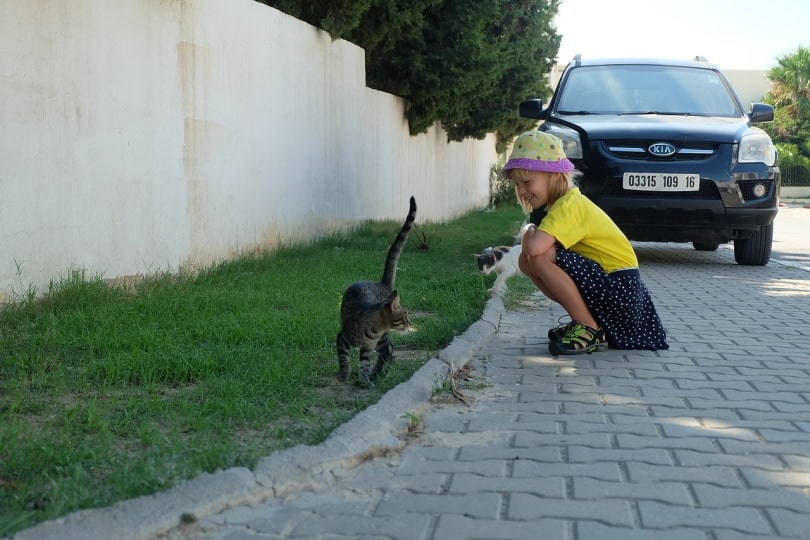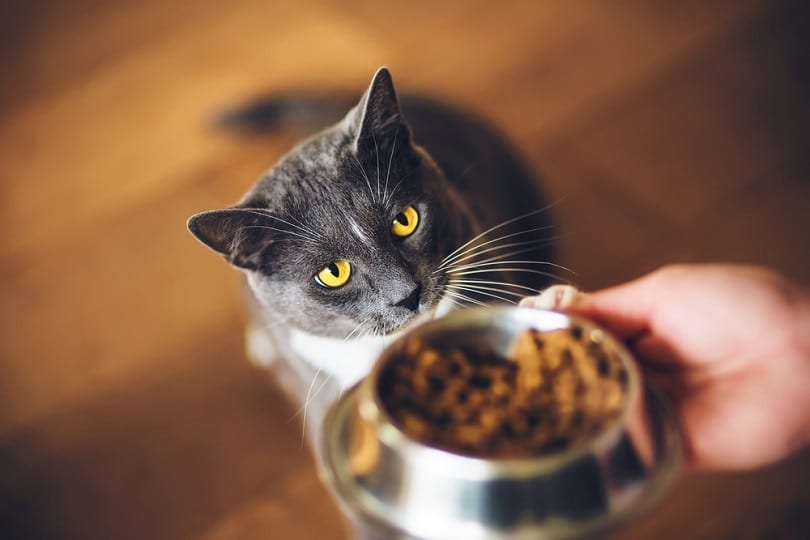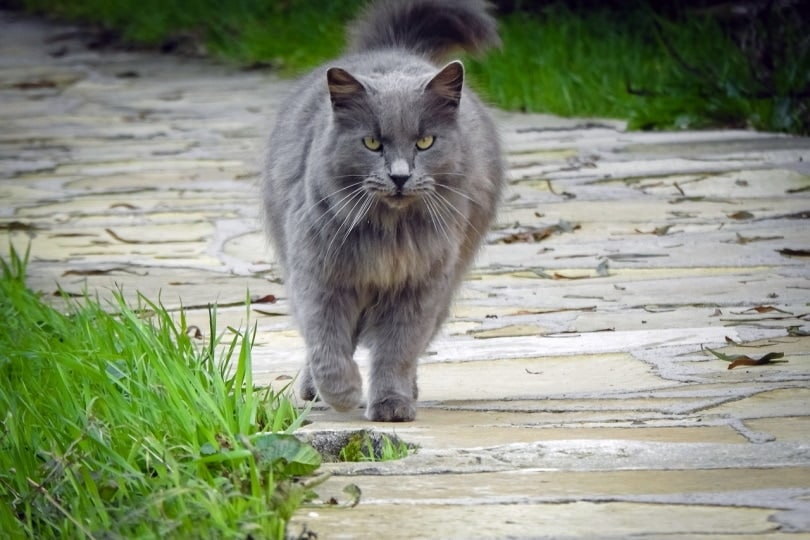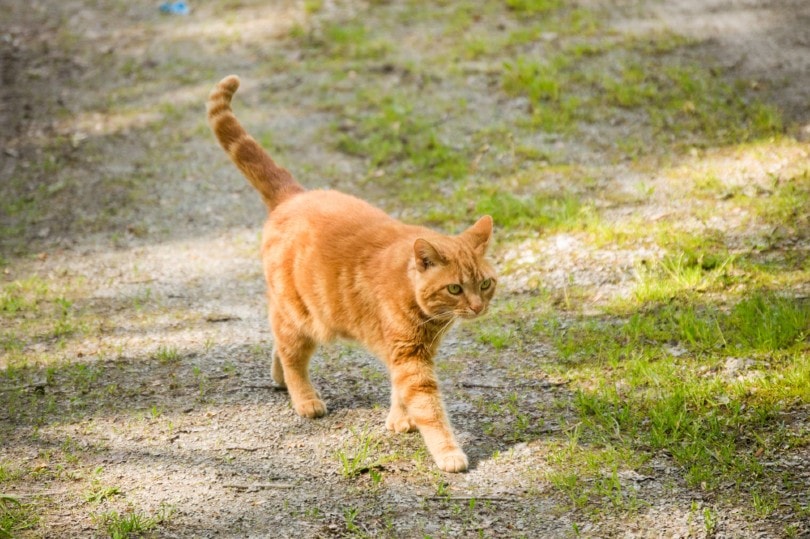Cats are mysterious creatures, and sometimes their behavior is hard to understand. One behavior that often baffles pedestrians is being followed. However, it makes more sense if you look at the reasons why a cat would follow you and decide if their behavior makes sense for the situation. For example, a hungry cat will act differently than a cat concerned about you being a trespasser.
Here are seven of the most common reasons cats follow humans.

The 7 Reasons Cats Follow Strangers
1. The Cat Wants Attention
One of the most common reasons cats follow strangers is because they are friendly and want attention. Cats who want attention are often outgoing and friendly, approaching you to beg for pets and cuddles. These cats usually have a good sense of which humans are safe to be around and likely to hurt them. You probably passed the test if a strange cat begs you for attention.

2. They’re In Trouble
Anecdotally, cats may also approach humans if they are in trouble. Many stray cats have a fond opinion of humans and may seek out help if they are sick or injured. Mother cats might also try to bring a human back to their kittens to give their kittens help. If you see an injured or sick cat, it’s not beyond the realm of possibility that they might be asking for help and possibly looking for someone to treat their injuries.
3. Hunger or Thirst
A cat that doesn’t have a regular food source (or one that just got put on a diet by their owner) might approach strangers to beg for food, especially if they can smell something tasty on you.
They might want food or water if they are meowing, sniffing at your pockets or bag, and giving you their best puppy-dog eyes (or in this case, kitten-cat eyes). On hot days, dehydration is a serious problem for cats outdoors, and many don’t have access to a regular water supply, so begging for water can be especially common if an outdoor cat is accustomed to people offering them a drink.

4. You Arouse Curiosity
They say that curiosity killed the cat, but the cats haven’t learned their lesson so far. Many cats will follow strange humans because they want to get a better look at us. It’s hard to know what catches a cat’s fancy, but the result is pretty easy to detect.
If a cat is following to satisfy curiosity, they will probably stay at a distance and not approach you. Once their curiosity is satisfied, they’ll stop following you and return to familiar territory.
5. The Cat Wants to Explore
You should be careful to assume that a cat is lost or stray—many cats with outdoor access regularly venture several streets away from home with no problem. But if a cat follows you to your home and keeps begging for attention, they might be curious to explore your home. This is fairly common with socialized cats that live in a neighborhood where people don’t mind their presence.
At other times, a lost or displaced cat may associate your home with safety. If you feed a stray cat and they return regularly, you might have adopted a stray without realizing it.

6. Unusual Smells
Cats have strong senses of smell, and sometimes, the smell of someone passing by catches their attention. You might smell like food to them, or if you are a pet owner, they might be intrigued by the smell of other animals on your body and clothing.
A cat intrigued by your smell will probably be cautious and avoid your attention as much as possible, but they’ll approach you more closely than if you’d just aroused their curiosity.
7. You’re In Their Territory
A final reason why a strange cat might follow you is to keep an eye on their territory. Although cats can share space with other cats and animals, they are generally territorial towards strange cats, which sometimes extends to humans.
Cats spray, scratch, and rub against things in their territory to tell other cats about their presence in an area. A cat who escorts you at a distance of a few hundred yards and then waits for you to leave might be watching to ensure you’ve moved on from their territory.

What to Do When a Cat Follows You
Of course, you’re not obligated to take any action when a cat’s following you, but you might wonder what the best way to handle the situation is. First, don’t assume the cat is a stray, even if they don’t have a collar. Some cats wander farther than their owners realize, and several owners don’t put collars on their cats. However, a cat that looks dirty or emaciated or outside in harsh weather is more likely to be a stray.
Most of the time, the best action is to watch and determine what the cat wants. If the cat stays at a distance and doesn’t approach you, it’s best to ignore them. If they appear to be begging for something, you might be able to determine if they need help or are just being friendly. Once you know why a cat is following you, you can decide the best course of action. In most cases, a cat following you isn’t a cause for alarm.
Last Thoughts
As you can see, it isn’t so mysterious once you look at things from the cat’s point of view. A final dimension is that some people are bigger “cat magnets” than others. If you feel like cats are always drawn to you, be flattered! It means they probably feel safe around you and are sure you won’t hurt them.
- See also: Why Do Cats Sit On You? 6 Common Reasons
Featured Image: StockSnap, Pixabay












